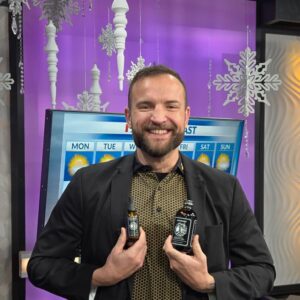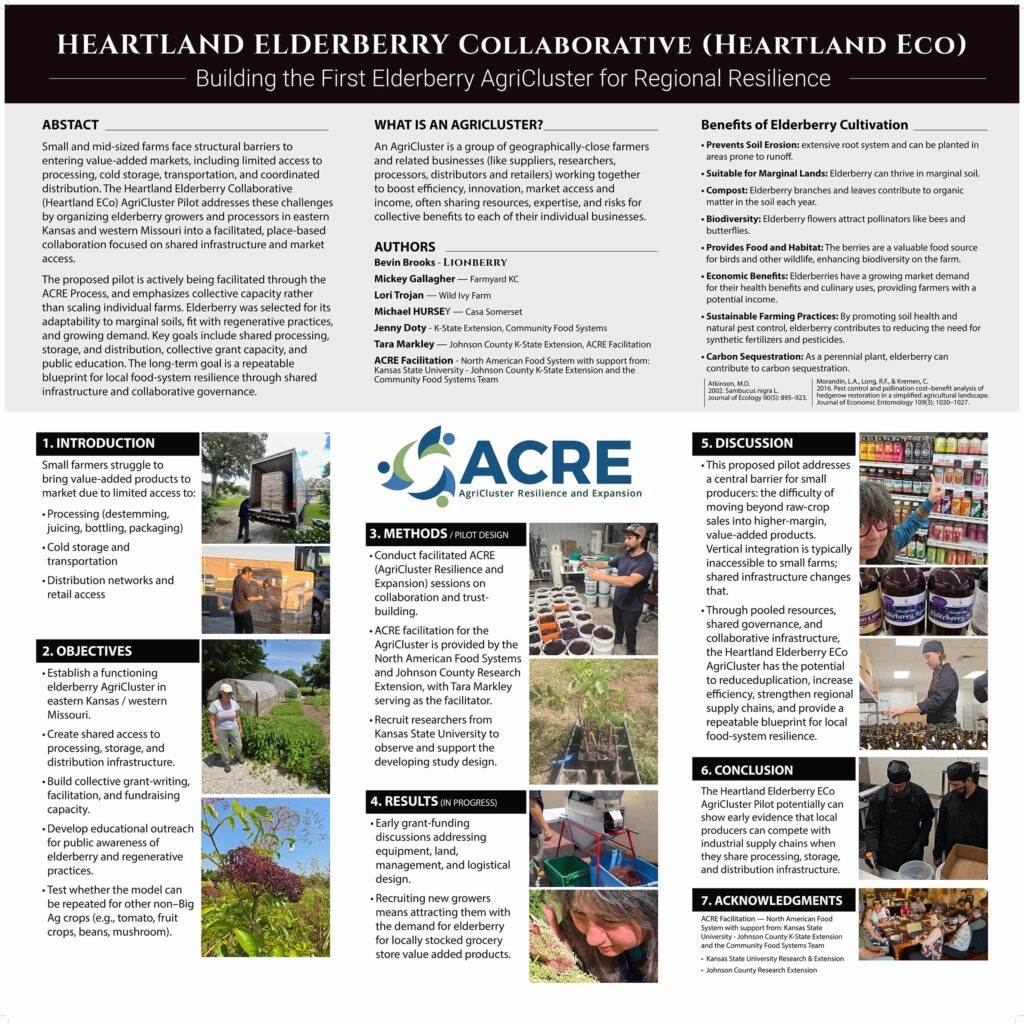
Let’s talk elderberry! We often have customers ask when or how to take our products for the maximum effect. We hope these tips below help to answer your questions.
I like to take it every day for immune support and inflammation. Peer-reviewed published research studies show that the anti-inflammatory effect of the phytonutrients in elderberries is significant. I take a teaspoon to a tablespoon of the SIPS daily.
I use the travel 2-oz bottle of SIPS when I feel ill and I sip on it every hour or two. It’s juice. I drink the 2-oz bottle over a day when I feel ill.
Elderberry’s anthocyanins are a heavy-duty workhorse. They are powerful antioxidants that reduce oxidative stress throughout the body. They even cross the blood-brain barrier to help reduce brain inflammation. I keep an 8-oz bottle in the fridge after I open it and take a teaspoon daily.
Several studies show taking elderberry at the first sign of illness is comparable to Tamiflu and Paxlovid the prescription antivirals for lessening the flu or covid. They help reduce the viral load and lessen the duration of the flu and COVID-19. Elderberry has shikimic acid in it which is the main ingredient in Tamiflu.
That’s why the travel bottle is perfect! It goes with you everywhere. It even gets through TSA and onto the plane so you don’t ruin your vacation.
Lion’s Mane mushroom is a tincture. You can take half of a dropper daily to help support brain connection, dendrite growth, and fight brain fog.
I have a new product LIONBERRY BRAINIAC LEMONAIDE TONIC that is a nice and light refresher. It has Lion’s Mane, elderberry, elderflower, pea flower, a bit of citrus and honey. It’s delicious and great for brain health. It will be out next week.
The difference between my products and the elderberry syrup you may see from other vendors is that I don’t cook and boil to reduce the elderberry to syrup. This is the traditional method. The big companies sell syrup and gummies but all the anthocyanins are degraded in the heat.
Buying local and regional helps us strengthen our food supply chains and avoid shipping disruptions. Invest in the land you live off of.
We need 22,000 acres of elderberry planted to meet the U.S. needs currently sourced through Europe. If you have 3-9 acres available to plant, a hedge available, or want to learn how easy it is to join the Elderberry Farm Movement! Give Bevin a call at (913) 277-9458.

We make two products with elderberry: LIONBERRY Regenerative Hydration and Elderberry Sips. Neither one is a syrup.
Syrup is fine for pancakes. Thicker is not better.
For elderberry — as food, as medicine, for maximum benefit — drop the pH, pasteurize fast, protect plant properties, no powders.
Long, slow steeping in heat — like simmering elderberry with spices for hours — is not better. Powder is fine for powdered sugar, powdered snow, and baby powder — but not elderberry. There is no place for powder in food. Dehydrating and powdering food changes cell structure, uses too much heat, and burns off delicate plant properties.
We never use dehydrated powder. Most powdered elderberry comes from overseas. About 95% of drugstore elderberry products rely on powdered European elderberry.
We use the native American elderberry — Sambucus canadensis, fresh-pressed. American elderberry contains dramatically higher levels of anthocyanins — the purple antioxidants — roughly 10× the antioxidant activity of blueberries, for perspective. It’s beyond a superfruit. It also has antiviral activity and supports gut health and immune modulation.
LIONBERRY Regenerative Hydration is more than a sports drink. It’s a recovery drink — for after you got your butt kicked, or for whatever it is that life did to you.
It’s strange what we give athletes and kids: sports drinks and energy drinks loaded with artificial colors, sweeteners, powdered isolates, and caffeine. LIONBERRY is the opposite. Not an energy drink. No isolates. No powders. Whole plants, intact, grown out of the ground by farmers.
Plants work through synergy. Their compounds evolved to function together. Isolating one molecule misses the point.
For LIONBERRY Regenerative Hydration, we start with a clear, light base of elderflower tea — easily drinkable — and add it to our elderberry. The anthocyanins in elderberry are delicate. Long heat destroys them. Repeated freezing and thawing destroys them. Powdering destroys them.
Mass spectrometry consistently shows that whole-food preparations retain broader nutritional complexity than powders or isolates. Dehydration and reduction require too much heat — the plant properties burn off.
We engineer pH first — not reduction, not boiling, not cooking it down into a syrup.
Elderberry starts around pH 5.1. That’s too high for safe bottling.
People brag about odd things. I have heard competitors advertise that they never add water to their elderberry syrup. Good. I should hope not.
Making an elderberry syrup is about as medicinal as making pancake syrup. Making syrup is traditionally done by cooking elderberry down with honey and spices. That’s worse than adding water. The plant properties are all gone.
To preserve plant properties, you need to drop the pH to prevent botulism, preserve anthocyanins, and proceed with a hot fill, hold, and then hermetically seal — without boiling the plant into oblivion.
We don’t make syrup.
Our second product is Elderberry Sips — that’s the name. Capital E. Capital S. Plural.
Elderberry Sips uses fresh-pressed elderberry — never powder, never concentrate. We add Concord grape (RESERVITOL – heart support) and tart cherry (melatonin & magnesium). Together they naturally drop the pH to ~3.7, allowing fast pasteurization without heat that causes degradation of purple elderberry anthocyanins. The lower pH protects the delicate plant properties. Elderberry Sips is ~15% tart cherry and Concord grape added to fresh-pressed American elderberry — without gallons of honey and without turning it into a syrup sugar bomb.
A syrup is defined as ~60% solids. To get there, you must boil and reduce. That process destroys anthocyanins.
Cinnamon is great — but it needs long, hot steeping. Elderberry needs fast, controlled heat. They are biologically opposite processes.
“Instead of asking each farm to grow bigger, we’re building shared capacity so farms can stay viable at their current scale while accessing value-added markets.”
An AgriCluster Pilot for Shared Infrastructure and Value-Added Market Access
Eastern Kansas / Western Missouri
Small and mid-sized farms face persistent structural barriers to entering value-added markets, including:
• Limited access to processing infrastructure
• Limited cold storage capacity
• Transportation constraints
• Fragmented, uncoordinated distribution
• High costs from duplicating equipment and logistics across individual farms
These constraints restrict grower profitability, inhibit vertical integration, and reduce the viability of diversified regional food systems.
The Heartland Elderberry Collaborative (Heartland ECo) is an active, facilitated, place-based AgriCluster pilot organizing elderberry growers and processors in eastern Kansas and western Missouri.
• Facilitated through ACRE (AgriCluster Resilience and Expansion)
• Emphasizes collective capacity-building and shared infrastructure
• Designed to enable farm-level vertical integration (grow, process, and take products to market)
• Structured to share infrastructure, governance, and market access
• Not a single-farm expansion program
• Not a commodity-scale production model
• Not a vertically integrated corporate system
• Performs well on marginal soils
• Integrates with soil-health and regenerative practices
• Supports perennial hedgerows and diversified systems
• Enables multiple value-added pathways (destemming, juicing, beverage and supplement production)
• Aligns with growing consumer demand for regionally produced products
The pilot is explicitly designed to test repeatability across additional non–Big Ag crops, including tomatoes, fruit crops, and legumes.
• Core grower group established
• Regular coordination underway
• Shared infrastructure priorities identified
• Grower recruitment initiated
• Early coordination with grocery buyers in progress
The Heartland ECo model proposes a centralized hub facility located south of Kansas City to support participating farms and processors.
• Aggregation and intake
• Cold storage
• Destemming
• Juicing
• Bottling
• Short-haul regional distribution
The hub is intended to reduce duplicated equipment costs, logistical inefficiencies, and fragmented distribution efforts that commonly limit small-farm participation in value-added markets.
Establish a functioning elderberry AgriCluster
Create shared access to processing, storage, and distribution infrastructure
Build collective grant-writing and fundraising capacity
Coordinate educational outreach related to elderberry and soil-health practices
Evaluate feasibility of scaling the model across additional crops and regions
This poster outlines a proposal for a forthcoming pilot study to formally evaluate the effectiveness of the Heartland ECo model.
• Economic impact
• Grower profitability
• Infrastructure utilization
• Soil-health indicators
• Logistical efficiency
• Replicability across crops and regions